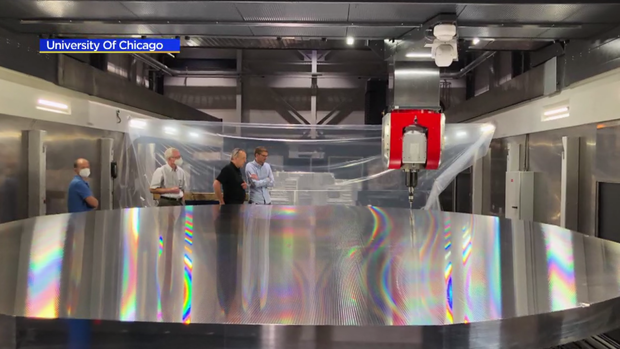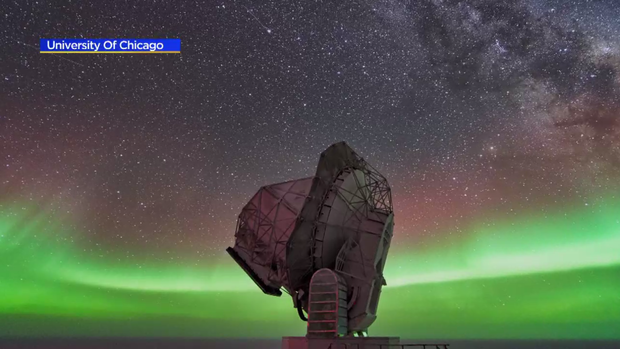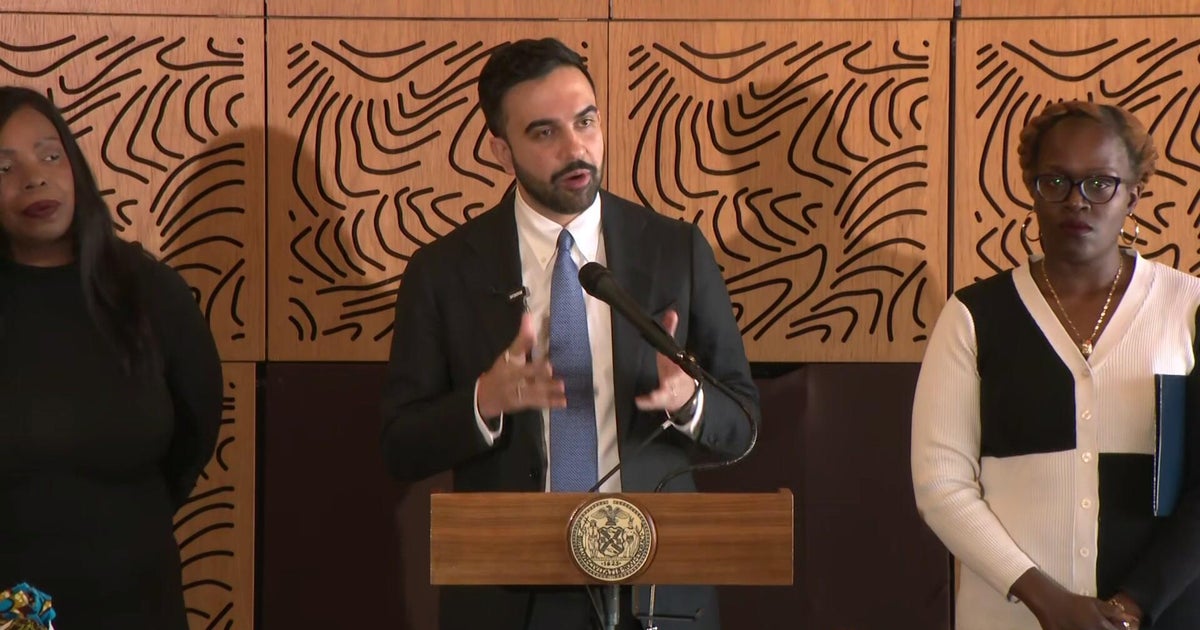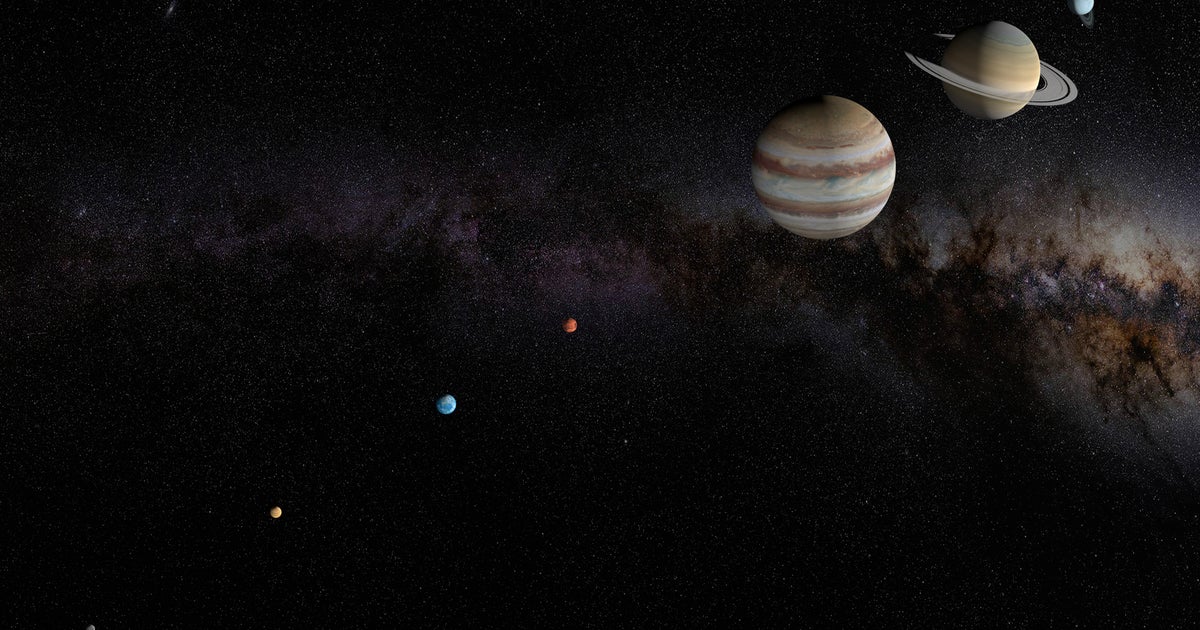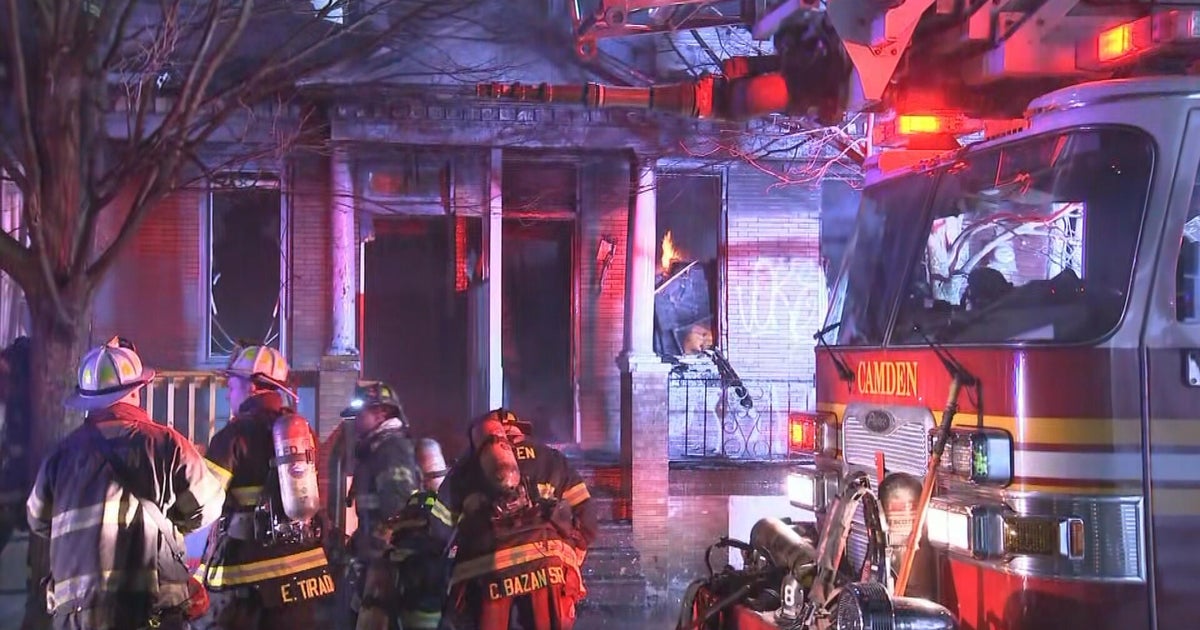Huge reflector arrives at University of Chicago for South Pole telescope project
CHICAGO (CBS) -- A new and shiny object arrived in a wooden crate Friday amid the gothic, brutalist, and modern structures of the University of Chicago campus in Hyde Park.
The object in question is at telescope reflector made from two 20-ton blocks of aluminum. It came to the U of C campus Friday afternoon for installation in the new High Bay Research Building for physical science research and large-scale device fabrication, at 5602 S. Maryland Ave.
The reflector was shipped from Germany – in an old-fashioned literal sense. It was too big to be flown across the Atlantic on an airplane, so it was hoisted onto a ship.
The reflector found its way to Gary, Indiana, where it began a journey on a truck. It required a police escort as it traveled through the city's South Side, as it is two car lanes wide.
Once the reflector arrived on the UChicago campus, its surface had to be mapped precisely with a laser to ensure the shape is exactly what is needed. The shape must be measured precisely down to tens of microns – or the width of spider silk, the U of C said.
The reflector is part of a larger project called CMB-S4. The project, for which the U of C received a $4 million award from the National Science Foundation, is a multi-institutional program that will map leftover light from the Big Bang in greater detail than ever.
The project, according to a 2019 article, will allow scientists to see back in time to the earliest epoch in the history of the universe by viewing remnant light known as the cosmic microwave background.
The light holds clues to mysteries about the universe, how it evolved, and how galaxies, stars, and planets developed, the U of C said.
This project involves a telescope scheduled to be completed in the early 2030s, but the telescope will not be at the High Bay Research Building or anywhere else on the U of C campus. It will, in fact, be in Antarctica.
The reflector is one of the first large components that has been built for the telescope, and it will eventually go to Antarctica too. The current plan is to drag the reflector from the Antarctic coast to the South Pole using heavy machinery – an 800-mile trip that will take about a month.
But for the next couple of years, the reflector will be on UChicago's campus, as scientists test it and bring together more components for the telescope.
